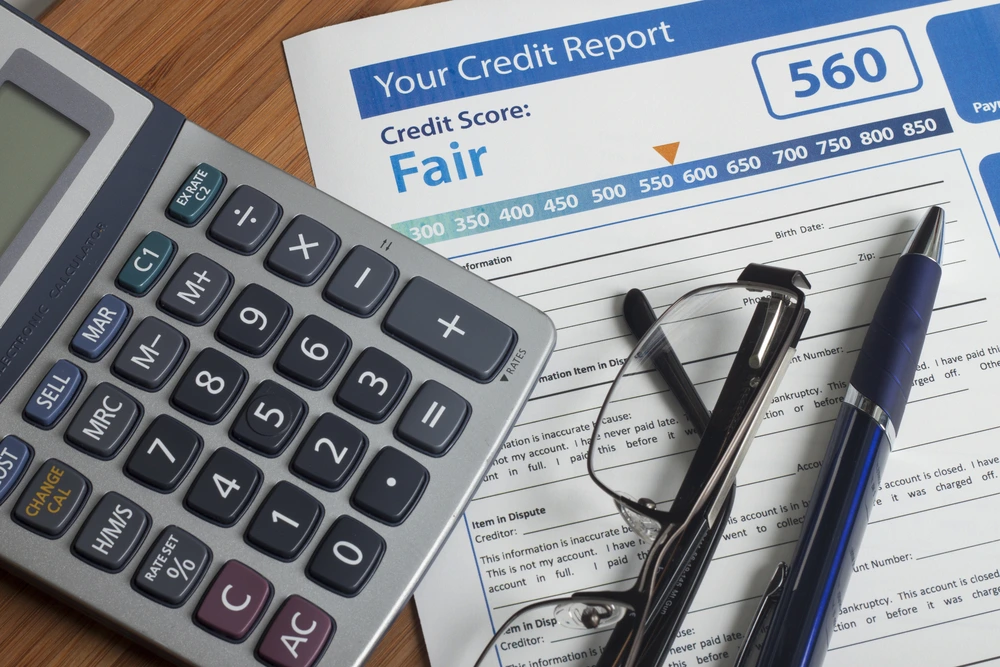What is the Purpose of a Credit Score?
A credit score is a key factor that influences financial decisions made by banks, lenders, and even utility companies. Whether you have excellent, average, or poor credit, your score can play a crucial role in determining your borrowing potential. So, what is the purpose of a credit score, and how does it impact your financial future?
Overview
- What is the purpose of a credit score?
- How is your credit score calculated?
- What is a credit score used for
- Should I get a credit card?
What is the purpose of a credit score?
Credit scores help financial institutions decide whether to lend to you or not. A credit score can help show if you can manage debt responsibly and if you are creditworthy. Having a good credit rating can show lenders that you are a low-risk borrower, and give you a better chance at approval when applying for a loan.
How is your credit score calculated?
Different credit bureaus calculate credit scores in different ways, so it may be beneficial to get a credit score and report from more than one bureau. Factors commonly used to help determine credit scores in Australia include:
Repayment history
Your repayment history is usually one of the most significant factors in calculating credit scores. It demonstrates you have been responsibly managing your debt over time.
Amounts owed
This factor takes into account the total amount of credit you currently have owing and the balances on those accounts. Lenders can analyse your spending habits and you may be classed as a potential risk if your spending goes above and beyond your credit limit.
Types of credit and providers
Having different types of credit—also known as a ‘credit mix’—can positively impact your credit score by demonstrating your ability to manage various forms of debt responsibly. Common types of credit include:
- Revolving Credit: Such as credit cards and lines of credit, where you can borrow up to a set limit and repay it flexibly.
- Instalment Credit: Includes personal loans, car loans, and mortgages, where you borrow a fixed amount and repay it in scheduled instalments.
The way these credit types are managed affects your credit score differently. Responsible borrowing from reputable lenders, including banks, credit unions, and authorised non-bank lenders, can contribute positively to your credit history.
Credit enquiries
The number of credit enquiries made on your credit report are also used in credit scoring models. If there are too many applications and credit checks within a short period and from multiple lenders it will have a negative impact on your credit score, regardless of the application outcome. The enquiry will stay on your file for 2 years, but the negative impact should fade within months.
Length of credit history
The length of your credit history matters because it shows that you have been able to manage debt over time. That’s why it can be good to have the same credit card for years instead of changing all the time.
Adverse events
Adverse events are things like missed payments and defaults and they will cause your score to drop. Defaults in particular will stay on your credit file for several years.
This is not a complete list of factors that influence your credit score, but it may give you an idea pf what may be affecting your credit score and preventing it from improving.Credit reporting agencies may use these and other factors to calculate your credit score, which helps lenders assess your creditworthiness. However, not all lenders rely solely on credit scores. Some may use alternative assessment methods, such as reviewing specific details in your credit report, your income, or your overall financial history.
What is a credit score used for?
Having a good credit score can be a key factor in how quickly a loan application is processed. Credit scores allow for the lender to have proof of your repayment history and therefore confirm if they want to lend to you. Here are some ways a credit score can be used to your advantage:
Credit cards
If you’re just starting out and need to build up your credit score, then you can apply for a credit card at 18. Credit cards can be one way to start building good credit and may be useful when getting future help from lenders. However, credit cards can also have a negative impact on your credit score if not used responsibly, so ensure you use your credit card carefully and never spend more than you are capable of repaying at the end of the month.
There are also ways to build up a good credit score without a credit card.
Mortgage
When looking for a home loan, a credit score can be a very important factor in a lender’s decision to loan you the money. This is because home loans are often a large sum of money and a credit score can help to show lenders how likely you are to repay the loan amount.
Rental arrangements
Similar to the home loan, credit scores can be used by landlords to establish if you are capable of paying weekly, fortnightly or monthly rent.
Personal loans
While some lenders may offer no credit check personal loans, these tend to have higher interest rates in order to mitigate any additional risk to the lender. Having a good credit score may make you eligible for lenders who do run credit checks and can offer more favourable loan terms and interest rates.
Phone and utility bills
When upgrading or changing providers, you may need to undergo a credit check. However, this is not a common occurrence and may depend on your payment history and bills. Should the provider need to check your credit rating, having a good credit score can make this process smoother and allow for a better approval rate.
Applying for a job
As if you needed more reasons to be nervous when applying for a job, some companies may ask for a credit check at the start of your employment. Thankfully, this is not a common occurrence, and an employer will typically request your permission before doing so.
Already have a credit score but it’s not the best? Read our blog on 6 Ways to Improve Your Credit Score.
Should I get a credit card to build a credit score?
If you’re just starting out and don’t have a credit score, or you’re looking for ways to improve your score, you may be considering a credit card. Getting a credit card in can be beneficial if used responsibly. It can help build your credit score, provide financial flexibility, and offer perks like rewards programs, travel insurance, and purchase protection.
However, it’s important to consider potential drawbacks, such as high interest rates, annual fees, and the risk of accumulating debt if not managed carefully. Before applying, assess your financial situation, spending habits, and ability to repay in full each month. If you are disciplined with repayments and use credit wisely, a credit card can be a useful financial tool.
Hopefully, this blog has been able to help you make sense of what the purpose of a credit score is and why it can be a very useful tool to have.
Bad credit score holding you back? Swoosh has you covered!
Need cash fast but your credit score isn’t looking great? Don’t worry, Swoosh can help! We offer bad credit loans for those who are looking for a loan before they have time to fix their credit scores. Apply online now and get fast approval.











